As cat owners, we've all had moments of puzzlement over our feline friends' peculiar behaviors.
One such behavior that can leave us scratching our heads, and sometimes literally scratching our hands, is why our cats may attack us when we're merely trying to clean their litter boxes.
A litter box is more than just a bathroom for your cat. It's a personal space where they perform one of their most vulnerable activities.
Imagine the shock when, in the midst of tidying up, you're suddenly ambushed by a ball of fur and claws!
Unpacking the Reasons: Why Do Cats Attack During Litter Box Cleaning?
It may come as a surprise, but there's often a method to the madness when your cat attacks during litter box cleaning.
This behavior, while distressing, is usually rooted in instinctual responses or emotional discomfort.
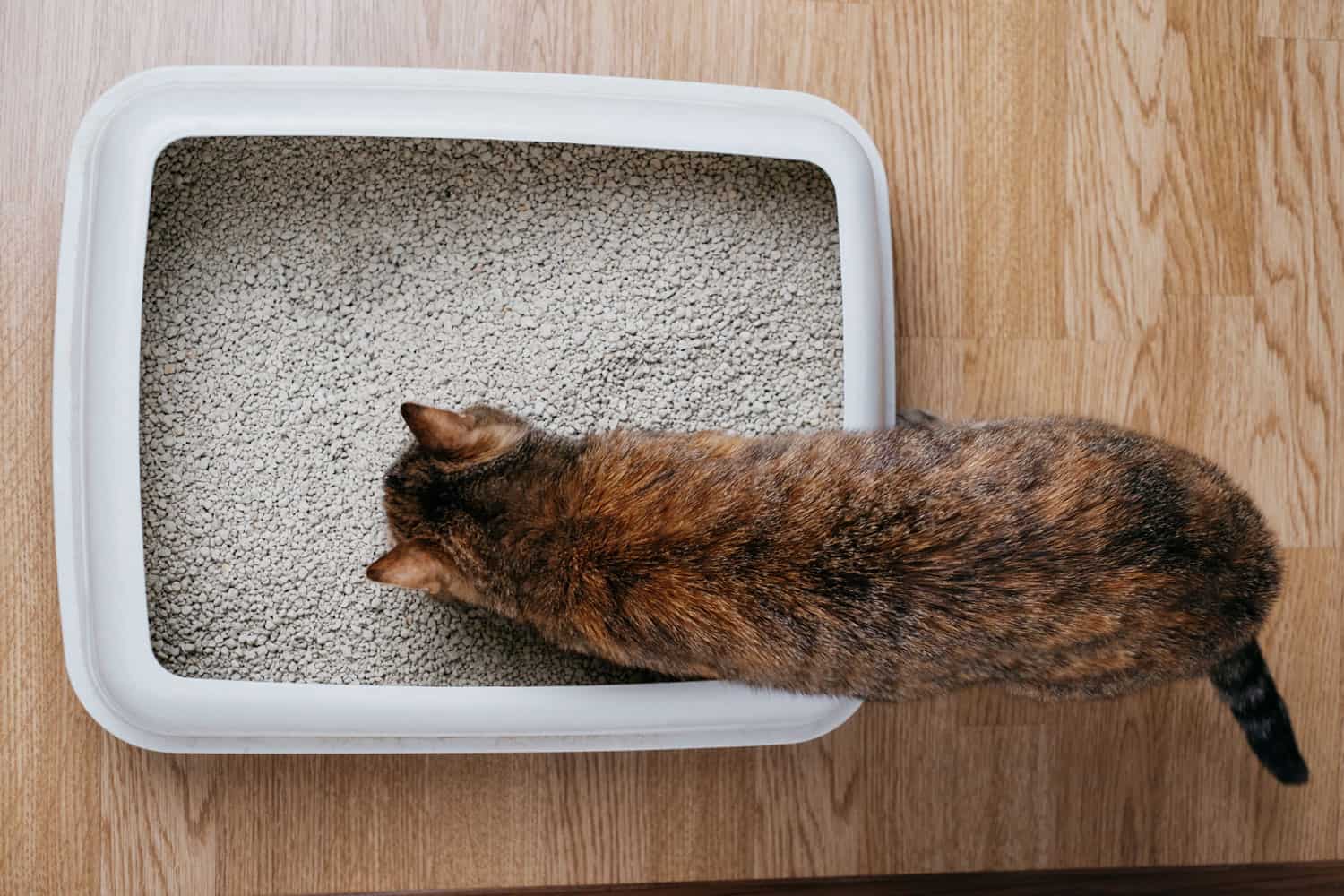
By understanding the motivations behind these attacks, we can take steps to mitigate them and create a peaceful environment for both us and our feline companions.
Below are some of the primary reasons why cats might become aggressive in this context.
1. Territorial Aggression in Cats: Litter Box as Territory
Cats are deeply territorial creatures, and this is reflected in many facets of their behavior.
One of the most significant of these behaviors is their relationship with their litter box. This is a place where they have deposited their scent, marking it as their own.
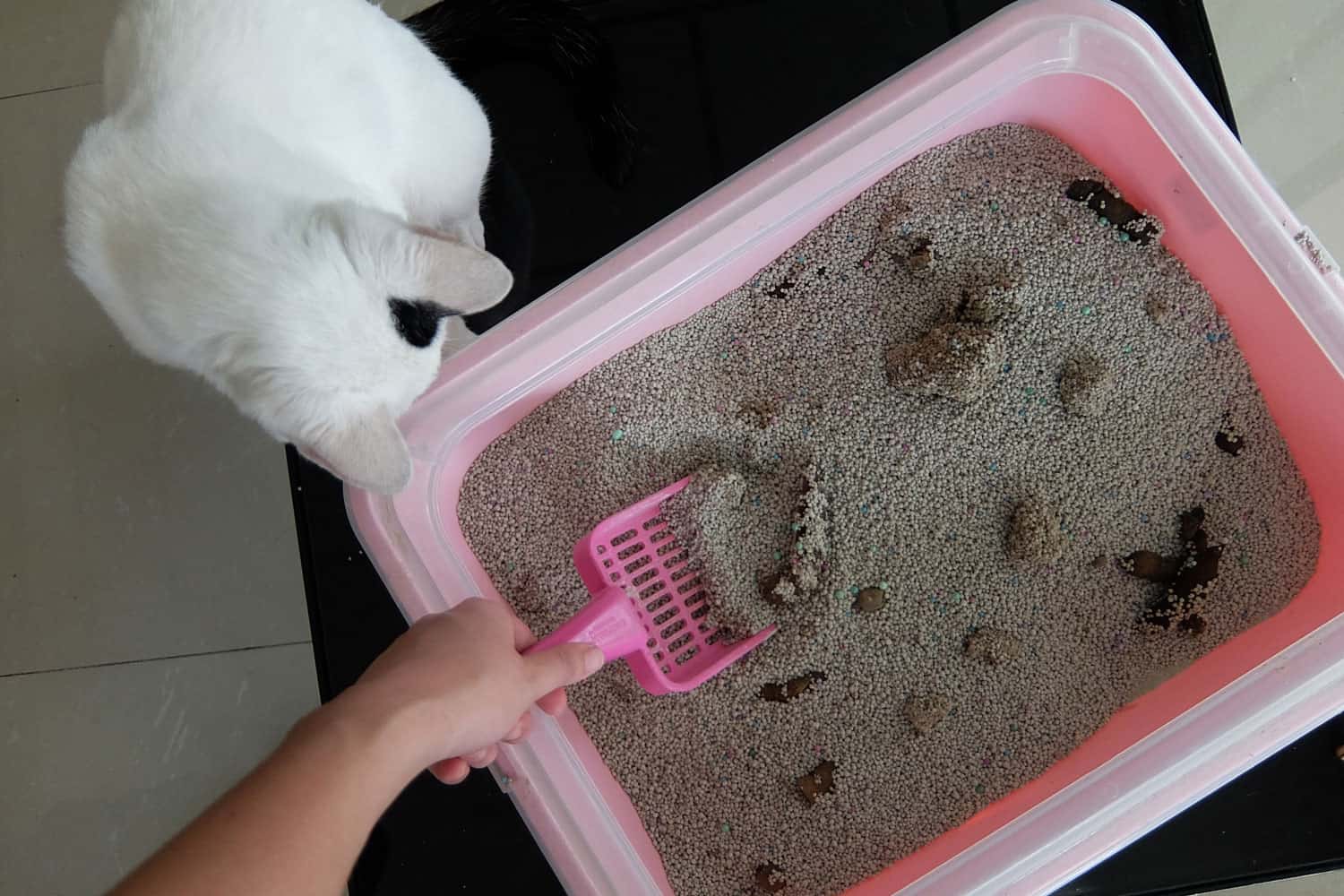
From their perspective, you're not just cleaning—it can feel like an invasion of their space and an erasure of their scent markers.
This perceived intrusion can trigger a defensive response, leading to what we interpret as an attack.
Remember, in your cat's world, they're simply defending their home turf.
Understanding this can help us approach the cleaning process more mindfully, respecting our cats' territorial instincts.
2. Stress and Anxiety in Cats: Environmental Changes and Litter Box Security
Cats are highly sensitive to changes in their environment.
A new type of litter, a relocated litter box, or even your presence during cleaning times can cause stress and anxiety.
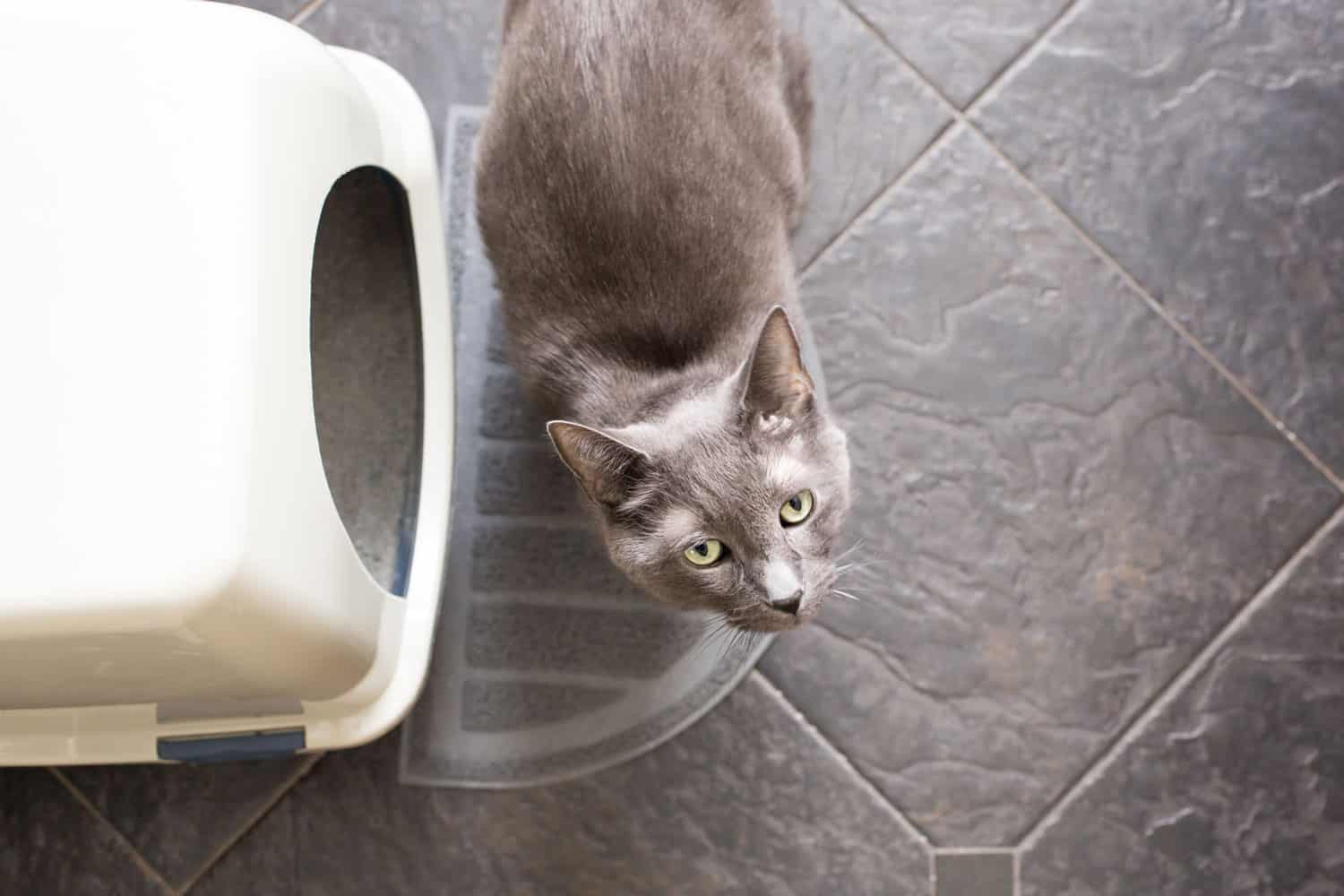
In these instances, the once-familiar litter box can suddenly seem like a source of insecurity.
When cats feel anxious or stressed, they might react in unexpected ways, including lashing out at their human companions.
It's important to minimize these stressors where possible, ensuring that the litter box remains a safe and comforting place for your cat.
3. Playful or Attention-Seeking Cat Behavior: Misinterpreted as Aggression
Cats have a unique way of expressing their need for attention or play, and sometimes, it can be misunderstood as aggression.
They might see the scoop in your hand as a toy, or your movements as an invitation for a game.
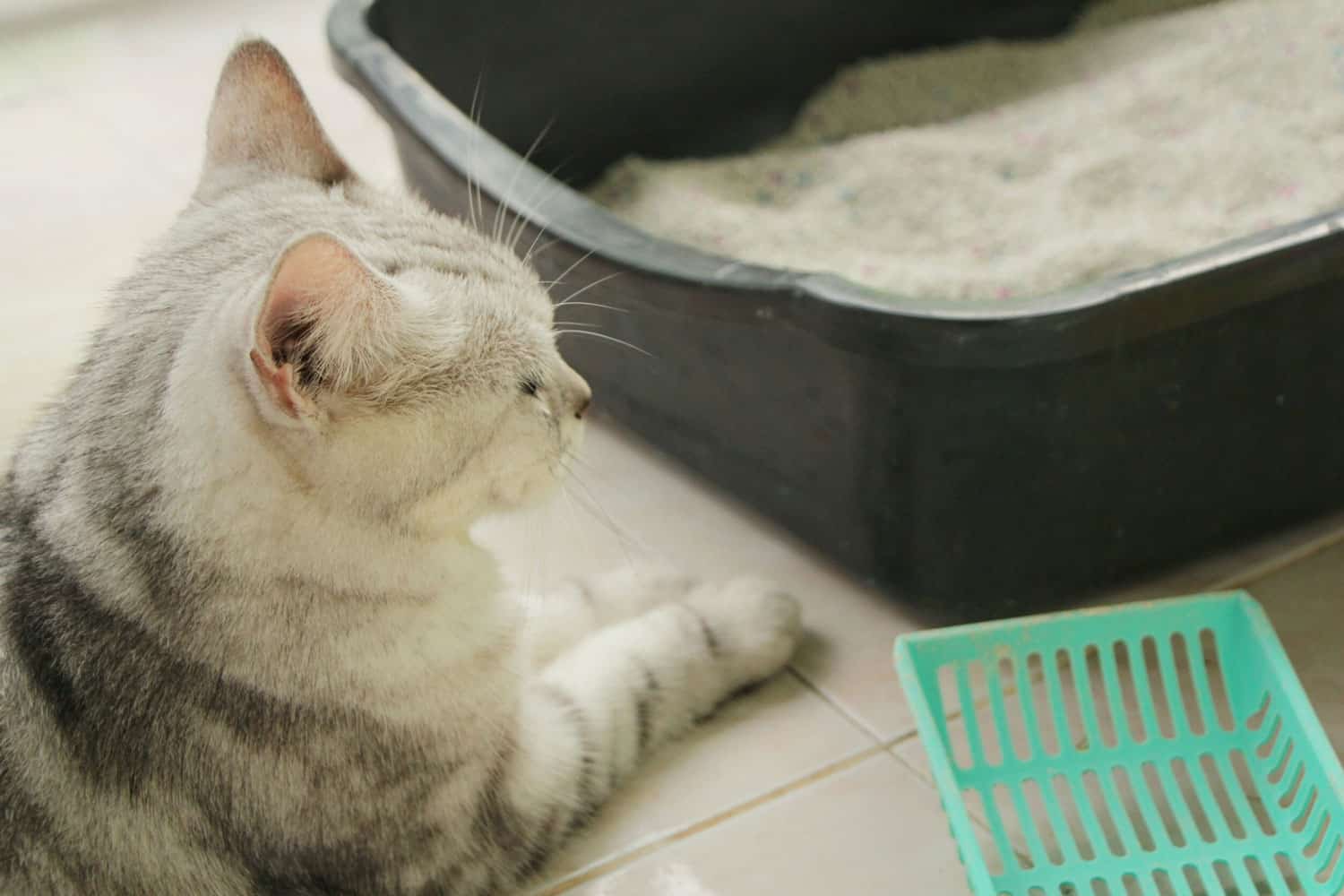
What we see as an "attack" might be their way of saying, "Hey, let's play!"
If you notice that your cat's "attacks" are more playful than harmful (light paw taps, no hissing, or retracting claws), it might just be their way of trying to interact with you.
Recognizing this can help you redirect their energy to more suitable playtime activities.
4. Cat Health Issues: Pain, Discomfort, and Aggression
If your cat's behavior changes suddenly or they seem unusually aggressive, it could be a sign of underlying health issues.
Cats often associate their pain or discomfort with the location where they experience it.
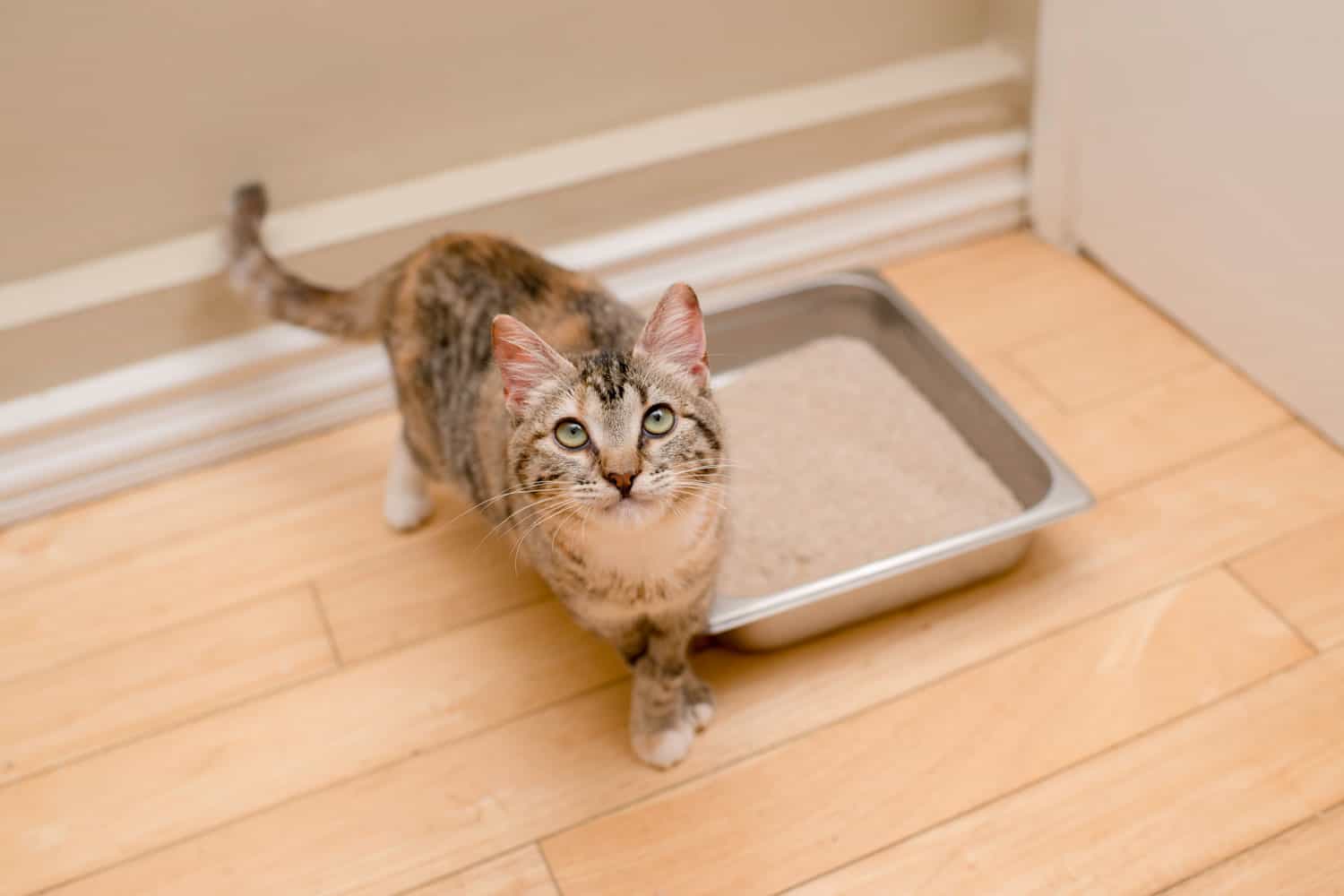
If they're experiencing pain during elimination, they might associate that discomfort with the litter box—and with you, when you're cleaning it.
Never dismiss sudden changes in behavior or aggression as merely bad behavior.
It's always worth consulting with a veterinarian to rule out any potential health problems that could be causing your cat's aggression.
Handling and Preventing Cat Attacks During Litter Box Cleaning
After knowing the possible reasons for cat attacks during litter box cleaning, it’s important to remember that there are ways to manage and even prevent this behavior.
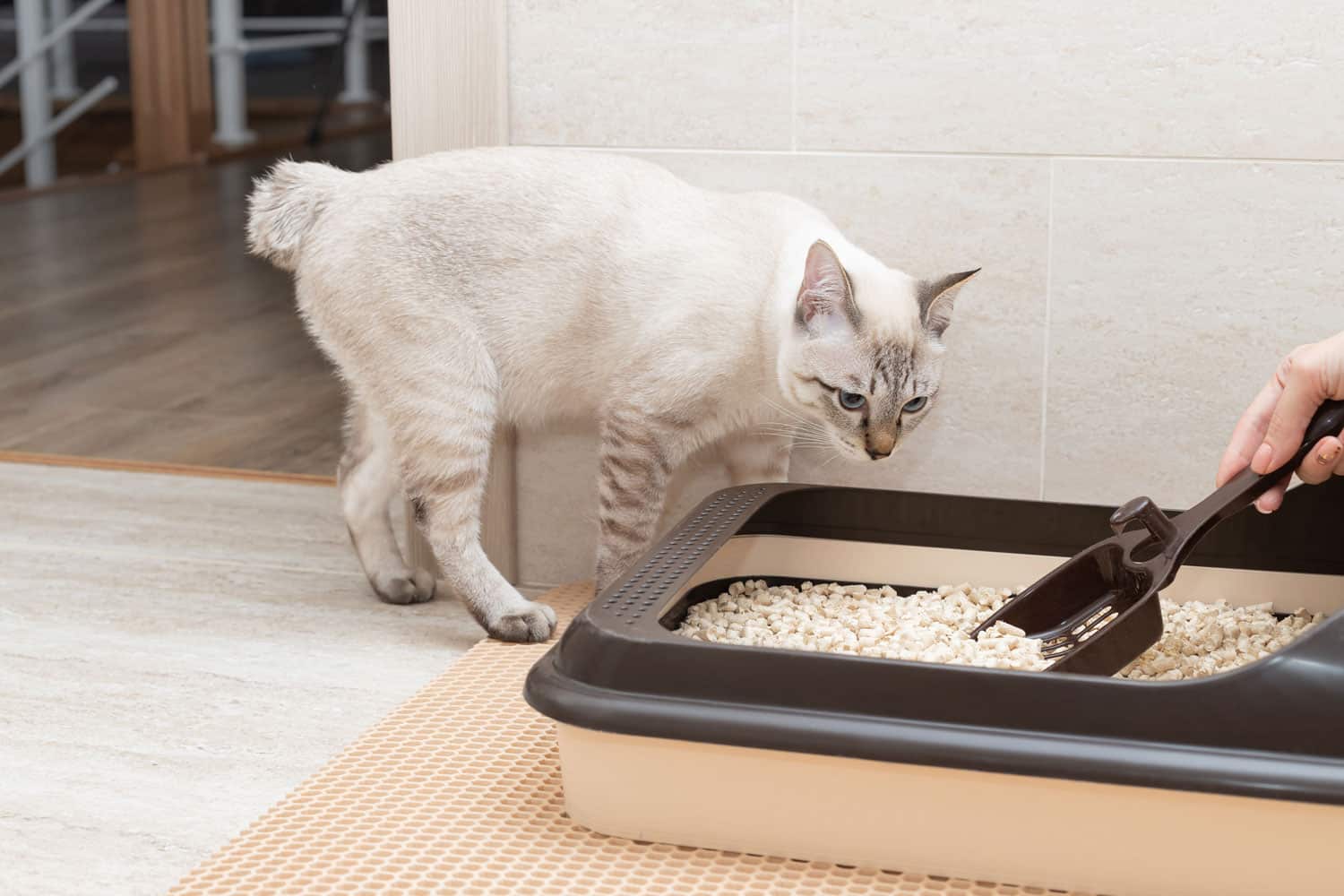
Understanding your cat’s perspective and responding proactively can make cleaning a less stressful experience for both of you.
Now, we’ll cover some effective strategies to prevent and handle cat attacks during this necessary task.”
Creating a Safe and Comfortable Space for Your Cat
A key part of managing your cat's aggression is to ensure they feel safe and secure in their environment.
Creating a cat-friendly home, complete with hiding places, high perches, and plenty of opportunities for play, can help reduce their territorial defensiveness over the litter box.
Cats love to survey their territory from high vantage points, and these can provide them with a sense of security.
Similarly, having a quiet, private place to retreat to can help them feel more at ease.
By enriching your home with these elements, you can help your cat feel more in control and less likely to react aggressively.
Litter Box Maintenance Tips for Cat Owners
Keeping the litter box clean is crucial for your cat's health, but how you go about it can also impact their behavior.
Establishing a regular cleaning schedule can help your cat get used to the routine, reducing their anxiety around cleaning times.
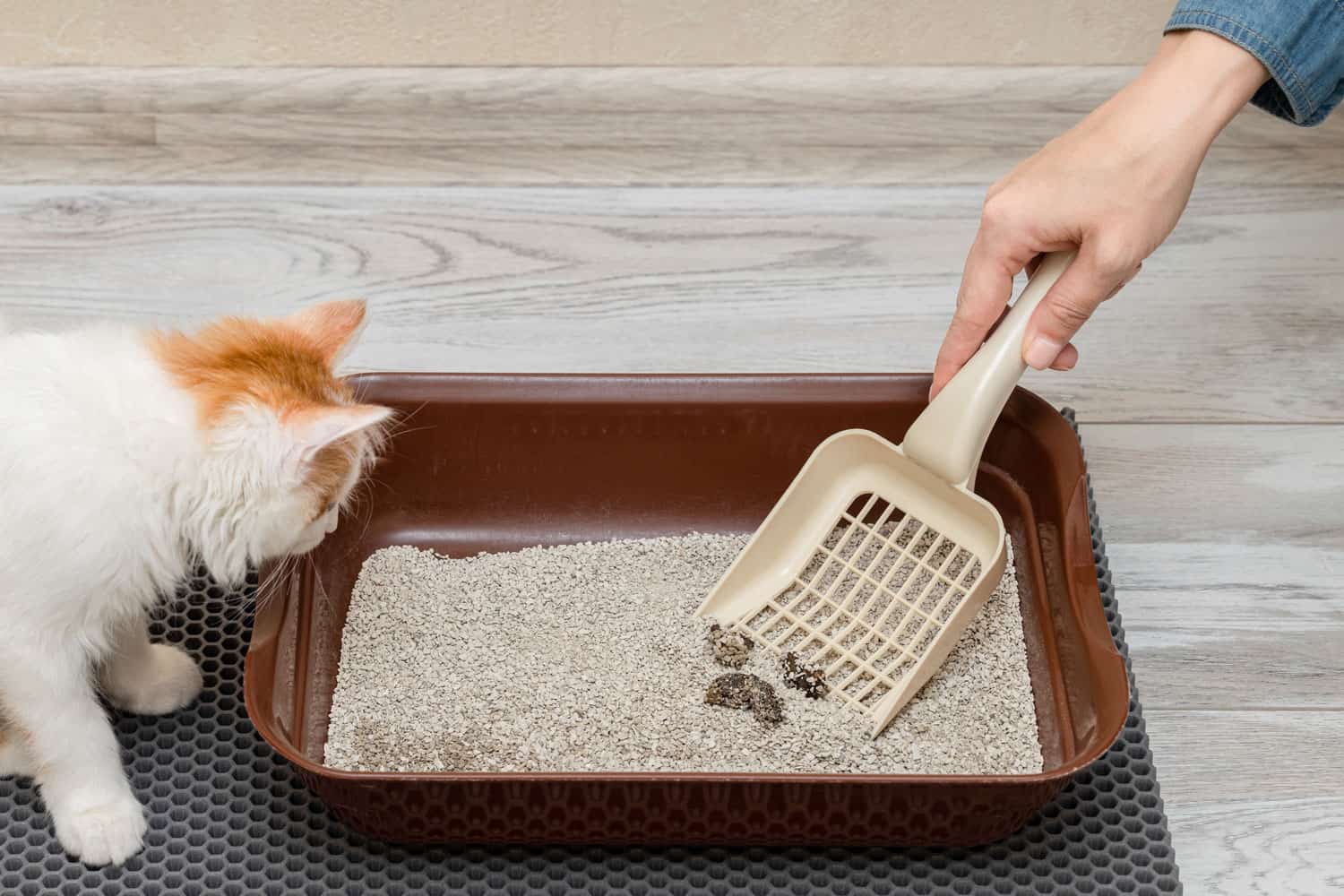
The type of litter and the design of the box can also play a role.
Some cats may prefer one type of litter over another, and some may feel more comfortable with a certain style of litter box.
Experimenting with different options and observing your cat's reactions can help you find the most stress-free solution.
Cat Training and Behavioral Adjustment Techniques
Training and behavioral adjustments are invaluable tools in managing cat aggression.
Positive reinforcement—rewarding your cat for desirable behavior—can help them associate litter box cleaning with positive experiences rather than threats to their territory.
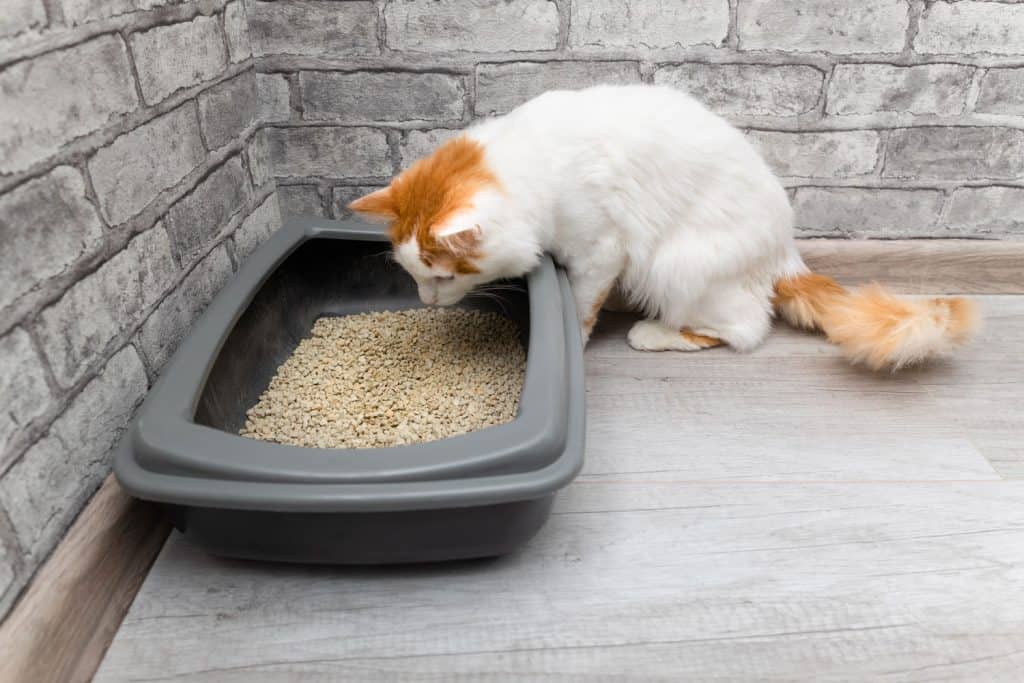
Gradual desensitization is another useful technique.
This involves slowly getting your cat used to the cleaning process, perhaps by letting them observe from a distance at first, then gradually allowing them closer as they become more comfortable.
Patience and consistency are key in this process.
When to Consult a Veterinarian or Cat Behaviorist
Despite our best efforts, sometimes professional help may be necessary to manage cat aggression.
If your cat's attacks continue or escalate, it's important to consult a veterinarian or a professional cat behaviorist.
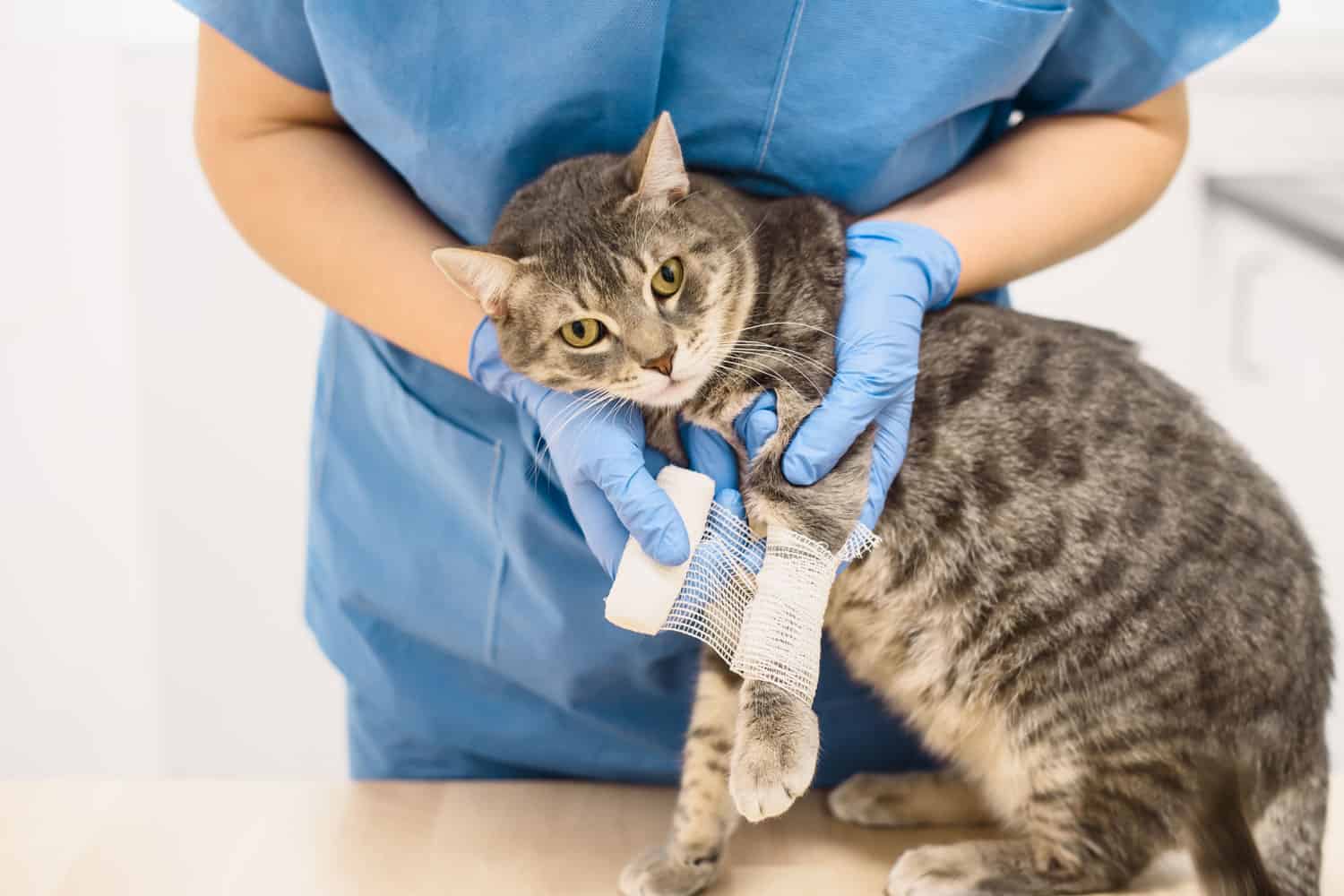
Health checks can rule out any underlying medical conditions that may be causing the aggression.
If the issue is behavioral, a professional can provide personalized advice and strategies based on their understanding of cat behavior.
Remember, there's no shame in seeking help—it's all part of providing the best care for your feline friend.
Understanding and Managing Cat Behavior During Litter Box Cleaning
Understanding your cat's behavior during litter box cleaning can be a puzzle, but with patience and understanding, you can ease the process.
Remember, your cat's reactions are primarily instinctive, not personal.
By recognizing signs of territoriality, stress, playful behavior, and potential health issues, you can approach litter box cleaning more effectively.
Maintaining a clean environment for your cat is vital, but so is making the process stress-free for them.
This could involve tweaking your cleaning routine, creating a secure environment, or seeking professional advice.
Ultimately, the goal is to foster a trusting relationship with your cat.
So, when you next clean the litter box, remember to be patient, attentive, and understanding of your feline friend's needs.
For helpful cleaning tips for your litter box, please refer to the articles below.



